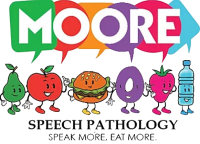Services
Please select the service/s you’re interested in learning more about
We support people to make their speech sounds clear and understandable.
Areas we support:
- Speech sound delay
- Articulation disorder
- Phonological disorder
- Childhood apraxia of speech
- Dysarthria
- Lisp
- Dyspraxia
Why is Language so important?
Language is important in every aspect of our lives because it allows people to communicate in a manner that enables the sharing of common ideas.
Receptive Language: A child’s ability to understand what people say (eg: following of instructions, questions, sentences & stories)
Areas we support:
- Language processing
- Auditory memory
- Following directions
- Understanding questions
- Understanding vocabulary and language concepts
- Understanding words, sentences, and stories
Expressive Language: A child’s use of language (eg: vocabulary, grammar, making up sentences)
Areas We Support:
- Language delay or late talkers
- Using gestures, taking turns, and making eye-contact
- First words and developing vocabulary
- Putting thoughts into words and sentences
- Developing grammar and syntax
- Asking and answering questions
- Telling stories and having conversations
The way in which we interact with others (Eye Contact, feeling recognition, conversation skills)
Areas we support:
- Pragmatic or social language disorder
- Making and maintaining friendships
- Understanding social cues and social expectations
- Eye-contact, facial expressions, and emotions
- Engaging and sharing enjoyment with others
Stuttering affects the fluency of speech. It is an involuntary repetition of speech sounds.
Some examples of this are:
- Sound repetitions: g-g-g-give me that
- Word repetitions: he, he, he, he is running
- Phrase repetitions: I want, I want, I want more mum
- Prolongations: mu-u-u-u-ummy look!
- Blocks: (Silence) getting stuck before the word comes out.
We use the Lidcombe Program to help with fluency issues.
The relationship between speech, language and literacy is interwoven and complex. In order to read and spell children need a clear understanding of letter-sound relationships together with intensive, explicit instruction in phonemic awareness, phonics, reading fluency, vocabulary and reading comprehension.
Phonological Awareness is the ability to hear and manipulate sounds in spoken language.
Literacy acquisition is learning how to take the information read/heard and being able to express what they have learnt.
Telehealth is the use of digital information and communication technologies, such as computers and mobile devices, to access health care services remotely and manage your health care.
Clients can access online therapy from a laptop, tablet, and most smartphones.
For video conferencing, a larger screen is better for your therapist to see and hear you, but we will endeavor to work with any device you have that is compatible.
Swallowing difficulty (dysphagia) is any problem with sucking, swallowing, drinking, chewing, eating, controlling saliva, taking medication, or protecting the lungs from food and drink ‘going the wrong way’. It can be a problem with keeping the lips closed so that food, liquid or saliva doesn’t dribble out.
Areas we support:
- Swallowing assessments
- Working out the safest, most efficient way for you to drink and eat
- Identify any interventions and supports that can help you
We use the SOS Feeding Approach to help with feeding issues. Only available for children.
A voice disorder is any change in the voice which affects the sound of the voice and ability to communicate in everyday situations. Voice disorders may occur from inappropriate use of the voice, medical conditions, following illness, damage to the nerves supplying the larynx, injury to the larynx or from neurological disorders.
We use a program called LSVT which stands for Lee Silverman Voice Treatment for our clients who have a Parkinson’s diagnosis or other neuro disorders/diagnosis. Amanda is a trained LSVT clinician.
Screening of speech and language skills is available for individuals or groups. A brief assessment of speech, receptive and expressive language, and pre-literacy skills (phonological awareness) can provide early identification of any issues so that children can have the best possible start to their learning. It can also provide reassurance to families about their child’s school readiness skills. Screenings may take place in the clinic, or at preschools, child care centres or schools on request.
